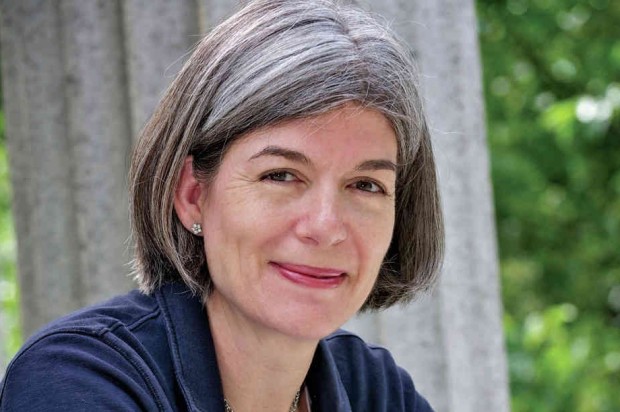“How angry am I? You don’t want to know. Nobody wants to know about that.” The very first line of Claire Messud’s The Woman Upstairs is surely one of the most intriguing openings to a novel this year. But her protagonist Nora, a Massachusetts elementary schoolteacher “halfway through life … waiting for my moment – who have I been kidding?”, also provoked one of the most passionate debates of the literary summer.
“Even at her happiest, Nora made me depressed,” said Emily Witt in the London Review Of Books. “An ungainly Frankenstein monster of a novel,” tutted Michiko Kakutani in the New York Times. And yet for every Witt and Kakutani, there was a Joanna Briscoe, calling The Woman Upstairs “erudite and deeply profound” in The Guardian. Or, indeed, The National’s own Nick March, who noted Messud’s blistering prose, “crackling with breathtaking intensity.”
Messud thinks she knows why she divided opinion. “It goes back to that first line,” she says. “Angriness in women is somehow too much information. Steve Jobs ranted about everything needing to be perfect – he’s held up as a genius but if a woman did that, everyone would walk away and work for somebody else.
“So Nora is every woman, to me. I don’t know of a single woman who doesn’t have a temper somewhere, we all have a spark of some kind. But we’re so concerned about keeping our sparks under wraps. We don’t want to set anything alight.”
Actually, The Woman Upstairs is so much more than 300 pages of vitriol. Nora is disillusioned because she is a teacher rather than a great artist, but as the novel unfolds she comes into the orbit of a Lebanese family and the potential for joy and wonder in her life becomes teasingly apparent. Enchanted by the Shahids, she shares the costs of an artist’s studio with the wife and mother Sirena and babysits the boy, Reza.
“Their nationality was important,” she says. “My father was French and spent a significant amount of his childhood in Beirut, which he loved. I taught at the American University Of Beirut in 2010. I love the cosmopolitanism of its people, the complexity of its history.
“See, one of the many things the book is about is this strange American problem of not being able to engage with the rest of the world. It sees other cultures as an idea, an abstract notion. But you can’t live like that in Lebanon. You’re surrounded by different cultures every day. And part of what attracts Nora to the Shahids is that she feels she’s breaking through some sort of barrier to the outside world. They excite her.”
And yet, intriguingly, the Shahids never seem that enthused by Nora. In the end, Sirena does something so unkind that the reason for Nora’s initial anger becomes all the more apparent. But Sirena has a completely different perspective on the relationship – and even America itself. It’s here where Messud explores the difficulties of the immigrant experience with some clarity: Reza is called a “terrorist” and told the playground is for Americans. Messud’s previous book, The Emperor’s Children, is regularly cited as being one of the classic post September 11 novels, but in a way The Woman Upstairs is more so.
“To be honest, if you’re trying to draw a remotely accurate portrait of what the world is like, a novel will inevitably reflect or reference September 11,” she says. “Saying ‘this is an intolerant nation’ is too simplistic. In fact, Americans are generally a people of enormous openness and goodwill, but it’s a country that seems from the outside to be less appealing. I have an Indian friend who still won’t come here. She’s heard too many stories of people with brown skin being harassed on the American border.”
It’s this mix of social, ethical and cultural concerns in The Woman Upstairs that makes it so potent. And most of all, it depicts the interior life of a compelling woman in a wry and thought-provoking way.
“What’s underneath the surface of us all is so much richer, tumultuous and complicated than anybody would ever imagine,” she says. “And that just fascinates me.”
The Woman Upstairs (Virago) is out now


